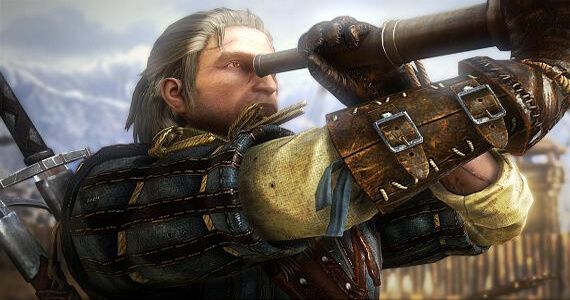When Polish game developer CD Projekt RED created The Witcher 2 (review), the company chose not to include any Digital Rights Management (DRM) protection with the GOG.com version of the game. Within a week of release, the company removed the DRM from the other versions as it felt placing such restrictions on the software mainly hurt legitimate users. CD Projekt Red Development Director, Adam Badowski, explained that DRM schemes did not support CD Projekt RED's philosophy as they create obstacles for users of legally bought copies. Badowski further commented that CD Projekt RED's strategy to countering piracy was, "to incorporate superior value in the legal version."
This approach must have failed to prevent significant losses to piracy, however, as the company later hired outside legal counsel to pursue claims against those who had illegally downloaded The Witcher 2. The contracted law firm reportedly sent copyright infringement notices requesting approximately $1,200 in damages to each identified pirate. As a result of this action, fans of The Witcher 2 strongly voiced their concern that these tactics could wrongly target those who had downloaded the product legally and that this course of action was heavy-handed for a company that had a reputation for being fan-friendly.
In response to this outcry, Marcin Iwinski, co-founder of CD Projekt RED, issued a press release stating that the company would immediately cease identifying and contacting pirates. Iwinski explained that the company's actions were never intended to injure those who legally purchased The Witcher 2:
Being part of a community is a give and take process. We only succeed because you have faith in us, and we have worked hard over the years to build up that trust. We were sorry to see that many gamers felt that our actions didn't respect the faith that they have put into CD Projekt RED. Our fans always have been and remain our greatest concern, and we pride ourselves on the fact that you all know that we listen to you and take your opinions to heart. While we are confident that no one who legally owns one of our games has been required to compensate us for copyright infringement, we value our fans, our supporters, and our community too highly to take the chance that we might ever falsely accuse even one individual.
Iwinski had previously estimated that The Witcher 2 had been pirated at least 4.5 million times and that it was only attempting to recover monies from those who had illegally obtained a copy of the game. While CD Projekt RED wishes to maintain its fan-friendly relationship, Iwinski asks gamers to return the favor by discouraging others from committing piracy:
Let's make this clear: we don't support piracy. It hurts us, the developers. It hurts the industry as a whole. Though we are staunch opponents of DRM because we don't believe it has any effect on reducing piracy, we still do not condone copying games illegally. We're doing our part to keep our relationship with you, our gaming audience, a positive one. We've heard your concerns, listened to your voices, and we're responding to them. But you need to help us and do your part: don't be indifferent to piracy. If you see a friend playing an illegal copy of a game--any game--tell your friend that they're undermining the possible success of the developer who created the very game that they are enjoying. Unless you support the developers who make the games you play, unless you pay for those games, we won't be able to produce new excellent titles for you.
Do you think it was fair for CD Projekt RED to pursue individuals for damages? If not, what should a developer do to protect its intellectual property rights?
The Witcher 2 is available on Windows PC and is scheduled for release on the Xbox 360 during the first quarter of 2012.
Source: PC Gamer

